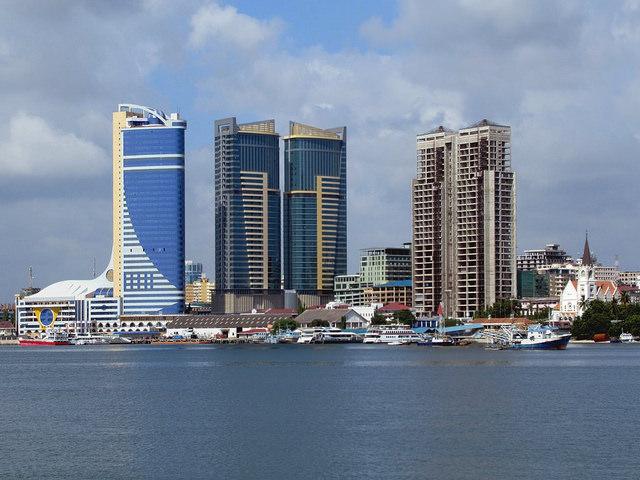- The IMF projected Tanzania’s real GDP at 4.8 per cent but stands at 4.7 per cent
- The US$1.04 billion loan goes after boosting the nation’s economic recovery
- The Covid-19 and Russia-Ukraine war spillovers have contributed to shaking Tanzania’s economy
Tanzania’s economy is slated to bounce back strong as the International Monetary Fund (IMF) furnishes the East African nation with about US$1.46 billion to cover three years (40-month).
According to IMF, the handsome financial package under the Extended Credit Facility (ECF) will assist the economic recovery and address the spillovers from the Russia-Ukraine war, preserve macroeconomic stability and support structural reforms toward sustainable and inclusive growth.
This loan comes at an essential time for the nation of more than 60 million, striving to shrug off economic shocks. Hence, Tanzania has been utilizing every resource at its disposal.
READ: Report Insight: Tanzania economy still standing tall
The current administration draws massive financial assistance and investment attention in crucial sectors. Thus, the funding package stands to press the economy forward. The IMF executive directors urged Tanzania to channel the funding towards developing human capital and infrastructure and address the gender gap.
By April 2022, the IMF projected Tanzania’s real GDP growth to stand at 4.8, while the government of Tanzania revised the growth rate for 2022 to 4.7 per cent due to Russia-Ukraine tension weighing on economic recovery.
“Spillovers from the war in Ukraine are stalling the Tanzanian economy’s gradual recovery from the Covid-19 pandemic, exacerbating the country’s development and reform challenges to unleash its economic potential.” The IMF statement on the financial package pointed out.
The IMF executive directors highlighted Tanzania’s stern response to the pandemic and mitigation initiatives towards handling the Russia-Ukraine tension spillovers, which complimented the nation’s request for financial support.
READ: Tanzania nabs IMF US$14.3 million debt relief
Moreover, the IMF statement noted that “the ECF arrangement is centred on supporting the economic recovery from the scarring effects of Covid-19 and coping with spillovers from the war in Ukraine; preserving macroeconomic stability, and advancing the structural reform agenda toward sustainable and inclusive growth.”
On a broader scale, the IMF’s financial support goes after levitating Tanzania’s essential priorities.
“The program draws from the key priorities of the government’s Five-Year Development Plan. IMF financial support is also expected to help stimulate private sector investment and catalyze financial support from development partners,” the IMF statement noted.
The IMF didn’t shy away from arguing for Tanzania to focus on rebalancing expenditure towards social spending and improving its efficiency and execution. The IMF pointed out that Tanzania will require measures to cope with high fuel and food prices and handle its debt sustainability.
Samia shifts from Magufuli’s loans strategy
In June 2016, the IMF said Tanzania needed to implement structural reforms and reduce public spending to finance significant infrastructure projects.
At the time, the East African economy was planning to start important projects like ports, highways, and a railway line that would expand trade between Burundi, Rwanda, and Uganda, three landlocked countries in the region.
For the 2,200-kilometre railway project, the late President John Magufuli had already obtained a US$7.6 billion loan from China. Magufuli had given the IMF a wide berth.
Defending her use of loans from multilateral lenders, Tanzanian President Samia Suluhu Hassan told a crowd in Accra, Ghana in May 2022 that the organizations were her nation’s lifeline during the Covid-19 outbreak.
On a panel with the presidents of Ghana, Mozambique, and Comoros, Samia claimed that the loans she received from the African Development Fund (AfDB) and the International Monetary Fund (IMF) had helped her stabilize the economy, enhance the standard of the educational environment, and increase access to clean water.
She told the audience,
“With the backing of the AfDB and other multilateral lenders, I have done well,” on Tuesday during the Presidential Dialogue on Africa’s Development Challenges and Opportunities, which was a part of the AfDB’s Annual Meetings this year in Ghana.
Suluhu Hassan has been engaging with several lenders including the Export-Import Bank of India and China for concessional financing for projects in sectors including water and sanitation, aviation and the construction of railroads.
In order to attract investors and boost capital inflows, Suluhu Hassan stated in March this year that they were also looking for a credit rating. She did, however, point out that due to the potential financial dangers, they were not yet eager to sell Eurobonds.
